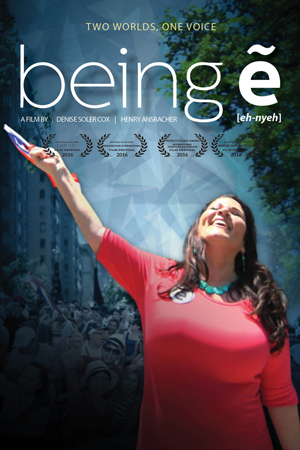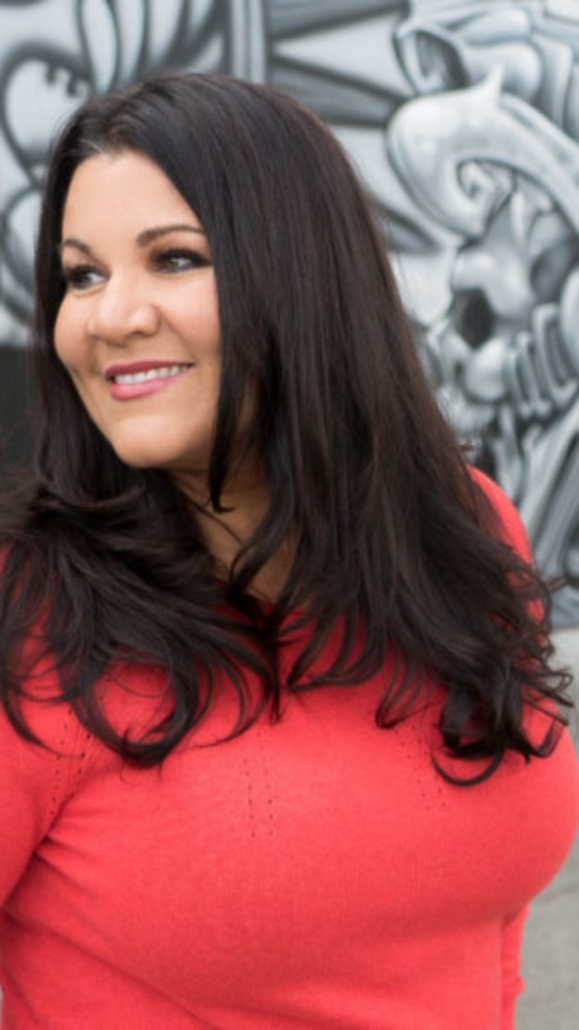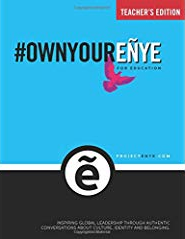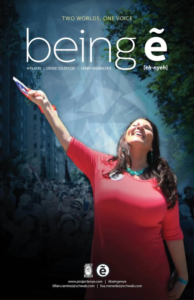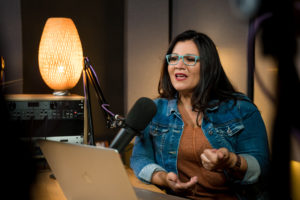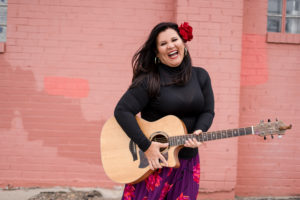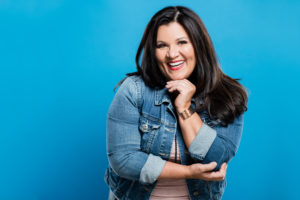
For the longest time, I have struggled with feeling Mexican enough.
Though my parents came here from Mexico looking for a better life, they don’t quite fit the stereotypes that are usually associated with immigrants. My father has been a computer science professor at the University of Houston-Clear Lake since we moved to Houston in 1989 and my mom has her Master’s degree (and almost received her PhD) in economics though she chose to stay at home to raise my brother and me and later, my two sisters. We grew up middle class in the suburb of Clear Lake, went to good schools, and though we weren’t well-off, we still participated in various activities in and outside of school before heading off to college. If we worked outside of school, it was by choice and not because of family necessity. In short, we never wanted for anything. All of us are pretty fair-skinned, except for my youngest sister, and if you met us, our American accents never give away the fact that we are actually bilingual, able to switch to Spanish effortlessly when the occasion calls for it. The downside of my experience? We don’t have any extended family in Houston because they’re all in Mexico (except for an uncle and his family who live in Austin). Even so, my parents made every effort to help us develop a great camaraderie with our cousins in Monterrey and Tampico by making family trips twice a year when we were growing up.
Because of this, I don’t normally see my story reflected in the mainstream narrative of the Mexican-American experience, which usually deals with issues like poverty, abuse, being undocumented, and not knowing how to speak English.
This has led me to feel guilty or defensive about my background at times. As a poet, I have written several poems about this “not enough” feeling, including the time I was interviewed for a graduate research project and how Mexican women reacted to me while I was working on my Master’s degree.
It has made me question on many occasions: “What about me really puts the “Mexican” in “Mexican-American?”
Though we listened to Mexican music when our parents would take over the radio, we grew up listening to the pop artists of the 90s and the 2000s. I’m talking *NSYNC, Destiny’s Child, Usher, Alanis Morissette, you name it. My sisters and I never had quinceañeras. Though I went to a very diverse school, my best friend was Chinese-American and most of the girls that I hung out with in my choir were white or black. If anything, I used to feel (and sometimes still feel) more at ease with non-Latinos because I don’t feel like they challenge my Latinidad, if they even recognize it to begin with. If I shared that I was Mexican-American, they would accept it from the onset whereas I can still initially feel self-conscious in the presence of other Latinos. It’s the reason I never really felt comfortable trying to make friends with other George Washington Carver scholarship recipients on a college retreat and instead gravitated more towards the mostly white students who lived on my Honors floor.
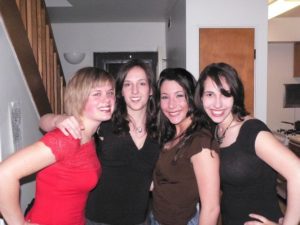
Though I could relate to a few writers we read about in the only US Latino lit college course I took, I didn’t start to feel comfortable with the Mexican part of my identity until I started working at a bilingual law office where I found that I had a lot in common with most of my coworkers who hailed from Colombia, Uruguay, Puerto Rico and Mexico.They embraced the loud, Spanish-speaking side of me with the Latino cultural and familial norms that my white friends could appreciate, but never truly understand. There was no need for explanations or apologies: I finally felt at home outside of my family in Houston. Once I moved on from that job, I really missed being a part of that community.

Then, a few years later, I found Denise and Project Eñye. I honestly don’t even remember how I happened upon this incredible project. Thinking back through my memories, it just sort of began existing one day. It was a world I recognized, a community of people like me whom I had longed for. Denise was asking questions about food, language and culture that I had wondered about, but never felt like I knew anyone who really understood. Even though I only knew her through this organization, it felt like Denise was reassuring me virtually, telling me, “It’s okay. You are enough. Stop apologizing for who you are.” I’m pretty sure I cried watching some of the videos! Even if I can’t relate to every story, there is still so much of me in the stories she and others tell about their Eñye experience as the first-generation children of Latin immigrants. After many conversations that have happened online over these years, I consider Denise and a few other members close friends even though I still haven’t met any of them in person yet. That’s the power of the Eñye experience Denise has tapped into and it’s what leads me to accept my own, for myself and also for my son.
As a new mom, when I think about what parts of our culture I would like to pass on, I consider my somewhat singular experience. While I missed out on the day-to-day interaction and relationship building with my primos, tíos y abuelos, I also didn’t have to deal with being compared to my cousins or feeling pressure to ascribe to more traditional gender expectations all the time.
In short, though I do wish I had had a closer relationship with my cousins, I don’t regret the freedom I had, first by not living close to extended family and second, by living in a more liberal American culture, which allowed me to treasure where my family came from, but also allowed me to explore who I was in the context of US culture.
While I want my son and future kids to grow up to be who they are meant to be, there are certain Mexican values that I hope they appreciate. First and foremost, I want them to understand the importance of family and always having each other’s back whether it’s tough love, lending an ear, or actively pitching in to help. I want them to enjoy chilaquiles and chiles rellenos con arroz blanco alongside turkey, mashed potatoes and stuffing during holiday celebrations like Thanksgiving and Christmas. I want them to treasure the days that are special to us whether it’s el Día de los Muertos, el Día de la Virgen de Guadalupe or el Día de los Reyes Magos. I want them to respect their elders, which means you can disagree and have your own opinion, but be mindful of how you express it. Finally, I want them to be bilingual, to be able to excel in English, but also savor the flavor of Spanish on their tongues.
In short, I’d like for them to have the best of the Eñye experience and to be proud of who they are, remembering their past while embracing their future.
_________________________
Eloísa Pérez-Lozano writes poems and essays about Mexican-American identity, motherhood, and women’s issues. A 2016 Sundress Publications Best of the Net nominee, her poetry has been featured in The Texas Observer, Houston Chronicle, Diverse Voices Quarterly, and The Acentos Review, among others. She lives with her family in Houston, Texas. You can find her on Twitter @elopoeta.

